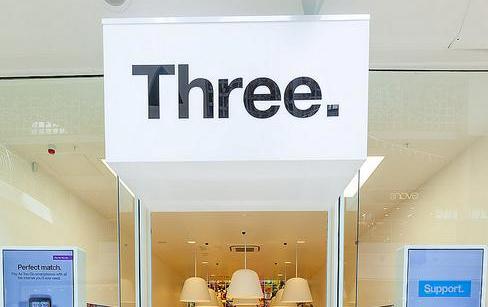The UK Competition and Markets Authority (CMA) has joined the clamour of lobbying surrounding the proposed merger of UK mobile operators Three and O2.
April 11, 2016

UPDATED
The UK Competition and Markets Authority (CMA) has joined the clamour of lobbying surrounding the proposed merger of UK mobile operators Three and O2.
In a public letter to European Competition Commissioner Margrethe Vestager, CMA Chief Exec Alex Chisholm stressed the point that he seems to have already made to her repeatedly in the past, that he thinks the merger is a bad idea because it will reduce the number of UK MNOs and thus harm competition.
Chisholm decided to spend the first half of his letter buttering up the EC, despite having been told in no uncertain terms that the CMA’s views on the matter are not required. “I would like to praise the level of co-operation between our two authorities – and indeed with Ofcom – which has been a notable feature of this case,” he said.
“There is no doubt that this is a multifaceted case, in a complex and concentrated market, with a number of interested stakeholders, and important UK-specific characteristics such as the two pairs of network sharing arrangements. In our view the EC case team has negotiated these complexities with skill, producing a statement of objections in February which was a very well-reasoned and thorough assessment of the concerns and which we, as well as Ofcom, were able to support.”
The letter eventually got to the essence of the matter, that the CMA doesn’t think the remedies offered by Three are sufficient as they won’t result in a new MNO being created to keep the number at four. Additionally the matter of Three and O2 currently participating in different network sharing deals is thought to be insufficiently addressed by the concessions.
The only viable solution, in Chisholm’s view, is for either Three or O2 as they currently are to be divested to a third party. This would seem to entirely defeat the object of the merger but he did make the concession that a mere chunk of one of the businesses may be sufficient to create a viable fourth player. Any concession other than this, urged Chisholm, should result in ‘prohibition’.
“The CMA urges the Commission to act to prevent the long-term damage to the UK mobile telecoms market, and therefore to the interests of UK consumers, that both of our authorities have predicted will result from this merger,” concluded the letter.
As Chisholm himself conceded this letter seems entirely redundant with respect to arming Vestager with any information she didn’t already have on this matter. It is, therefore, part of the ongoing PR exercise to which Ofcom boss Sharon White has also dedicated herself and is probably a direct response to the Three concessions announced last week.
UPDATE – 15:00 11/4/16: CK Hutchison has offered the following initial response to the open letter.
CK Hutchison will be responding to the CMA’s letter but would like to make the following points in response:
We are very disappointed that the UK CMA has published a letter to Commissioner Vestager this morning concerning the proposed Three UK /O2 merger. This can have no legitimate status in the merger control process.
It is no surprise that CMA opposes the merger. It always has, and so has Ofcom. But it is for the Commission to assess any competition concerns, on the basis of the facts and proposed remedies.
It is interesting to contrast the content of the letter with the attitude of the CMA (when it was the decision maker) and Ofcom in the BT-EE CMA merger clearance, which was approved without conditions or remedies, creating a dominant fixed-mobile behemoth in the UK market.
The CMA letter claims that the creation of a 4th full-fledged network operator is the only possible solution to address competition concerns. But no analysis or argument is given to support this, nor why Hutchison’s proposed remedies are insufficient. It is an entirely one-sided argument designed to support a preordained outcome.
The remedies proposed by Hutchison go far beyond remedies accepted in previous mobile merger cases by the Commission
Hutchison has commitments with Sky, Virgin, Tesco and UK Broadband to take up over 40% of combined network capacity to drive competition in the UK mobile market. It is astonishing that CMA has failed to refer to this, and has not assessed the impact of entry of such large, committed players on the competitive landscape.
The entry of so many diverse, strong and committed players will ensure that there is plenty of competition in the UK market and plenty of counter offers to any supposed price increases post-merger.
The divestiture of Three or O2 to a new MNO to gain approval of the merger is a red herring. There is no taker for such a remedy. It would also undermine the whole economic rationale of the merger and reinforce the spectrum inferiority and capacity constraints of both companies.
This merger is a huge opportunity to strengthen UK mobile infrastructure. Hutchison has committed to invest a further £5bn. Sky/Virgin/Tesco/UK Broadband will also invest, bringing the total of new private sector investment in the UK’s infrastructure to some £10 billion.
Consumers will benefit from a broader choice of mobile providers. The improved network will also allow faster speeds and better services with the existing sites and spectrum. Rural coverage will improve. There will be a new £5 All You Can Eat tariff for pensioners for voice and text. Three UK has guaranteed not to increase prices for the first 5 years.
We are confident that the Commission will exercise its legal obligation to review the case on its merits and take into account the impact of the plans of the remedy takers and new market entrants on competition and pricing in the UK mobile market.
About the Author(s)
You May Also Like








.png?width=300&auto=webp&quality=80&disable=upscale)


_1.jpg?width=300&auto=webp&quality=80&disable=upscale)


.png?width=800&auto=webp&quality=80&disable=upscale)